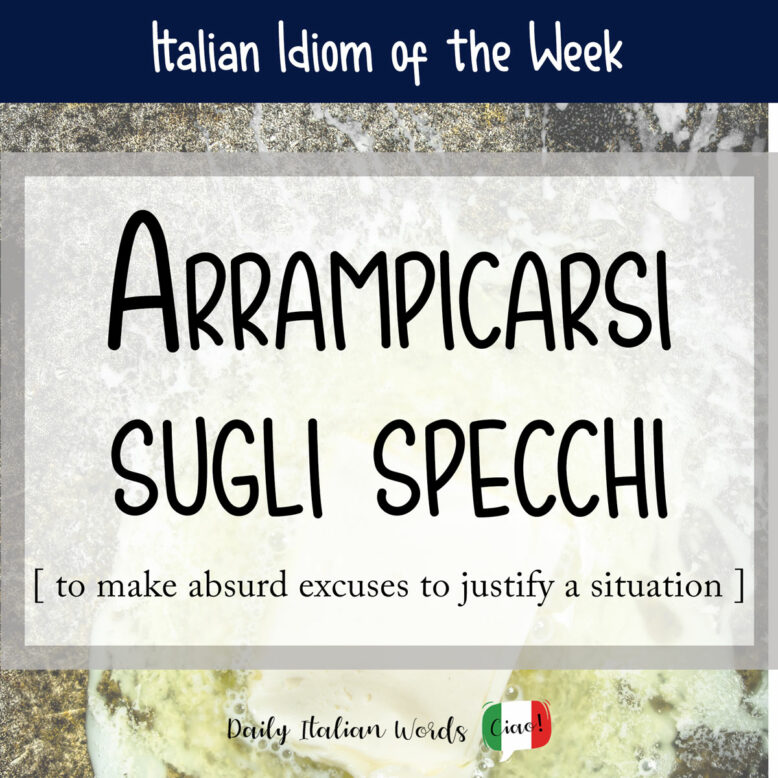An Italian idiom I learned from my husband early on in our relationship is arrampicarsi sugli specchi, which literally translates to climbing on mirrors. (And yes, before you ask, this is something of which I am guilty at times!)
arrampicarsi sugli specchi
to make desperate excuses to justify oneself or a situation

Figuratively, it refers to making desperate or far-fetched excuses to justify oneself, another person or a situation. Just as climbing a mirror is impossible due to the smooth and slippery surface, so too is making futile and absurd excuses in order to get out of a sticky situation.
Imagine, for example, that you arrive late to work for the umpteenth time. Instead of admitting to the error of your ways, or offering a reasonable explanation, you might claim that you were late because your alarm clock malfunctioned, your car broke down, and your grandmother was rushed to hospital, all on the same morning. In actual fact, you probably just slept in, but instead of telling the truth, ti arrampichi sugli specchi by spewing out a succession of elaborate and improbable the excuses.

In English, the closest idiomatic expressions we have are grasping / clutching at straws and to dig oneself even deeper, but neither quite capture the essence of the unique Italian art of “mirror-climbing.”
Ti stai arrampicando sugli specchi perché non vuoi ammettere di aver sbagliato.
You’re coming up with all sorts of ridiculous excuses because you don’t want to admit you made a mistake.
Did you know that on social media, many Italians have begun to substitute the idiom with the made-up English noun mirror climbing? It even has its own hashtag: #mirrorclimbing!
Heather Broster is a graduate with honours in linguistics from the University of Western Ontario. She is an aspiring polyglot, proficient in English and Italian, as well as Japanese, Welsh, and French to varying degrees of fluency. Originally from Toronto, Heather has resided in various countries, notably Italy for a period of six years. Her primary focus lies in the fields of language acquisition, education, and bilingual instruction.


